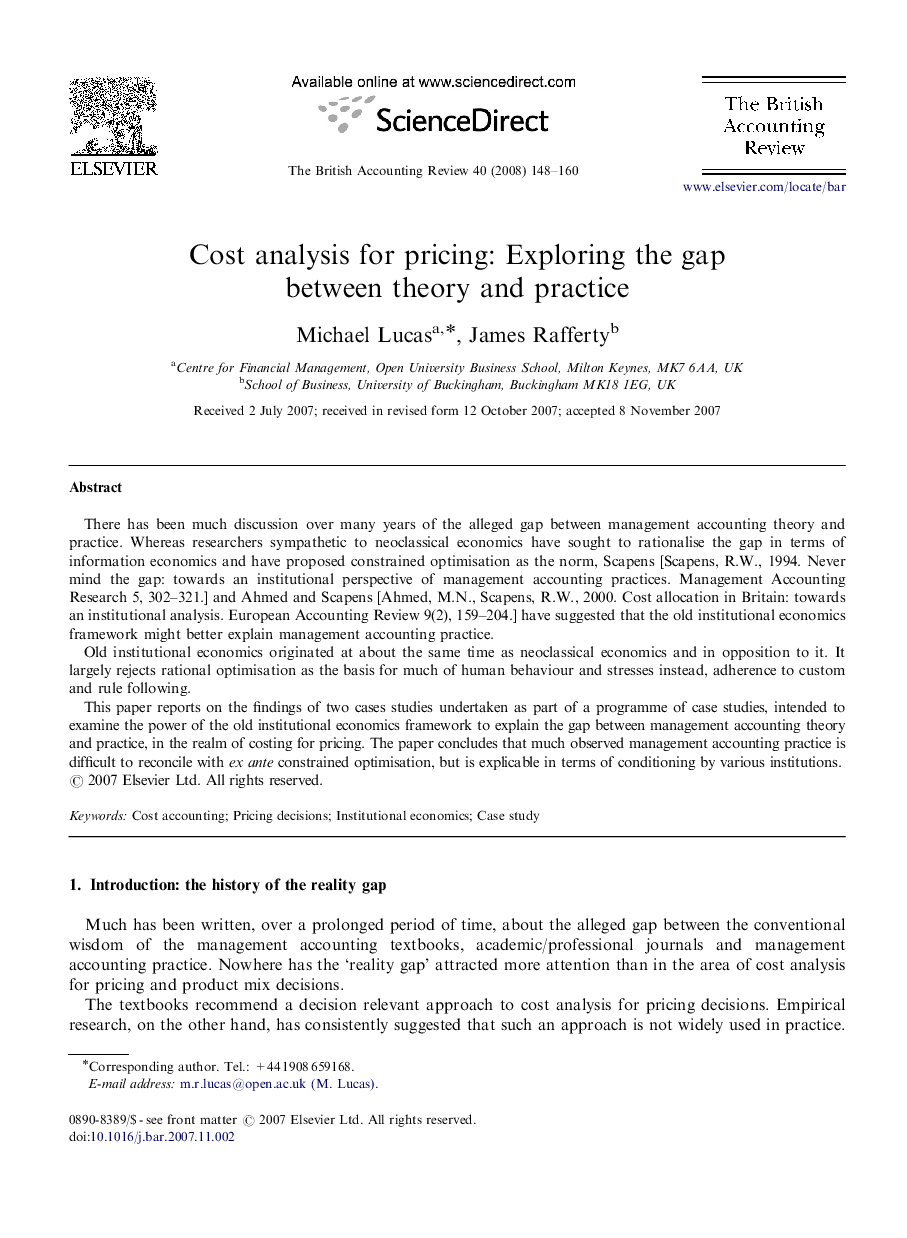| Article ID | Journal | Published Year | Pages | File Type |
|---|---|---|---|---|
| 1004168 | The British Accounting Review | 2008 | 13 Pages |
There has been much discussion over many years of the alleged gap between management accounting theory and practice. Whereas researchers sympathetic to neoclassical economics have sought to rationalise the gap in terms of information economics and have proposed constrained optimisation as the norm, Scapens [Scapens, R.W., 1994. Never mind the gap: towards an institutional perspective of management accounting practices. Management Accounting Research 5, 302–321.] and Ahmed and Scapens [Ahmed, M.N., Scapens, R.W., 2000. Cost allocation in Britain: towards an institutional analysis. European Accounting Review 9(2), 159–204.] have suggested that the old institutional economics framework might better explain management accounting practice.Old institutional economics originated at about the same time as neoclassical economics and in opposition to it. It largely rejects rational optimisation as the basis for much of human behaviour and stresses instead, adherence to custom and rule following.This paper reports on the findings of two cases studies undertaken as part of a programme of case studies, intended to examine the power of the old institutional economics framework to explain the gap between management accounting theory and practice, in the realm of costing for pricing. The paper concludes that much observed management accounting practice is difficult to reconcile with ex ante constrained optimisation, but is explicable in terms of conditioning by various institutions.
